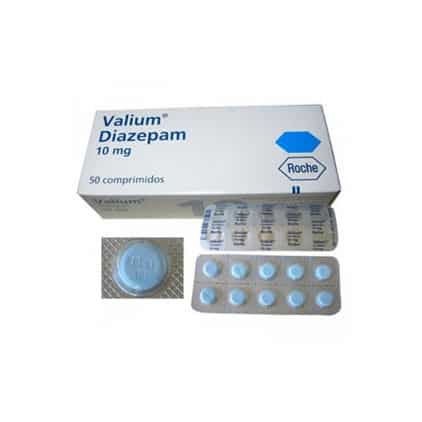Diazepam: Uses, Side Effects, Abuse, Addiction

Diazepam, first marketed as Valium, is a medication belonging to the benzodiazepine family that acts as an anxiolytic. It is a controlled medication commonly used to treat a range of conditions, including anxiety, seizures, alcohol withdrawal syndrome, benzodiazepine withdrawal syndrome, muscle spasms, insomnia, and restless legs syndrome. It may also be used to cause memory loss during certain medical procedures.
It can be taken by mouth, inserted into the rectum, injected into muscle, injected into a vein or used as a nasal spray. When given into a vein, effects begin in one to five minutes and last up to an hour. By mouth, effects begin after 15 to 60 minutes.
Who can and can’t take diazepam
- Diazepam tablets and liquid can be taken by adults aged 18 years and over.
- It can also be taken by children aged 1 month or older for muscle spasms.
- Diazepam rectal tubes can be used by adults and children.
It’s not suitable for everyone. To make sure it’s safe for you, tell your doctor before starting diazepam if you:
- have had an allergic reaction to diazepam or any other medicine in the past
- have liver or kidney problems
- have (myasthenia gravis), a condition that causes muscle weakness
- have (sleep apnoea), a condition that causes breathing problems when you’re asleep
- have depression or thoughts of harming yourself or suicide
- have been diagnosed with personality disorder
- have (or have had) problems with alcohol or drugs
- have recently had a loss or bereavement
- have (arteriosclerosis), a condition that affects the blood flow to your brain
- have low levels of a protein called albumin in your blood
- are trying to get pregnant, are already pregnant or breastfeeding
- are over 65
- are going to be put to sleep (have a general anaesthetic) for an operation or other medical treatment
How and when to take it
Rectal tube
Diazepam rectal tubes (or rectal diazepam) can be used if you or your child is having a fit. If you have been prescribed rectal tubes, it’s important that a family member, friend or carer knows how to give you this medicine.
If you’re having a fit, they also need to know how long to wait before giving you rectal diazepam.
Your doctor will decide the right dose for you or your child according to your weight, age and general health.
Tablets and liquid
Take diazepam tablets or liquid with a drink of water. You can take them with or without food. You’ll usually take your medicine 1 to 3 times a day. Your doctor will decide the right dose for you. It’s important to take diazepam exactly as your doctor tells you to.
The usual dose for:
- anxiety – is 2mg taken 3 times a day. This can be increased to 5mg to 10mg 3 times a day.
- sleep problems (related to anxiety) – is 5mg to 15mg taken once a day at bedtime.
- muscle spasms in adults – is 2mg to 15 mg a day. This can be given as 1mg twice a day and go up to 5mg 3 times a day. The dose can be increased up to 20mg 3 times a day if needed.
- muscle spasm in children (aged 1 month to 17 years) – varies depending on age. It’s usually given twice a day, with 10 to 12 hours between each dose.
Your dose might be lower if you’re over 65 or have kidney, liver or severe breathing problems.
What if I forget to take it?
If you’re taking diazepam regularly and forget to take a dose, take the missed dose as soon as you remember, unless it’s nearly time for your next dose.
In this case, just leave out the missed dose and take your next dose as normal.
Never take 2 doses at the same time. Never take an extra dose to make up for a forgotten one.
What if I take too much?
The amount of diazepam that can lead to an overdose varies from person to person. The most common symptom of a diazepam overdose is falling into a deep sleep or “coma” while still being able to breathe well enough. Other symptoms may include:
- Bluish-colored lips and fingernails
- Blurred vision, double vision
- Breathing is slow, labored, or stopped
- Confusion
- Depression
- Dizziness
- Drowsiness, lack of alertness
- Excitability
- Hiccups
- Rapid side-to-side movement of the eyes
- Rash
- Stomach upset
- Tiredness
- Tremor
- Weakness, uncoordinated movement
Before Calling Emergency
Have this information ready:
- Person’s age, weight, and condition
- Name of product (ingredients and strength, if known)
- Time it was swallowed
- Amount swallowed
- If the medicine was prescribed for the person
Poison Control
Your local poison control center can be reached directly by calling the national toll-free Poison Help hotline (1-800-222-1222) from anywhere in the United States. This national hotline will let you talk to experts in poisoning. They will give you further instructions.
This is a free and confidential service. All local poison control centers in the United States use this national number. You should call if you have any questions about poisoning or poison prevention. It does NOT need to be an emergency. You can call for any reason, 24 hours a day, 7 days a week.
Diazepam Safety Information
Benzodiazepines like diazepam have known abuse potential. Continued misuse of these drugs can easily lead to addiction. According to the DEA, more than 20 million people have abused benzodiazepines. Because diazepam can be addictive, caution should is exercised when prescribing the drug. It’s important to recognize that even people who’ve been prescribed diazepam can abuse the drug and eventually become addicted . Abuse of the drug occurs when a person:
- Takes more diazepam than prescribed.
- Takes more frequent doses than prescribed.
- Takes the drug without a prescription to get high or to modify the effects of other drugs.
Not only can abusing diazepam lead to ill effects on a user’s physical and mental health, it can be fatal. The risk is especially high when an individual combines diazepam with other CNS depressants like alcohol, opioids (e.g., heroin or painkillers), barbiturates, and prescription sleep aids (e.g., Ambien).
Some medicines interfere with the way diazepam works and increase the chances of you having side effects.
Before you start taking diazepam, tell your doctor if you’re taking :
- antipsychotics used to treat mental health problems
- antidepressants used to treat depression
- anticonvulsants used to treat epilepsy
- hypnotics used to treat anxiety or sleep problems
- drowsy or sedating antihistamines, such as chlorphenamine or promethazine
- strong painkillers, such as codeine, methadone, morphine, oxycodone, pethidine or tramadol
- HIV medicines, such as ritonavir, atazanavir, efavirenz or saquinavir
- antifungal medicines, such as fluconazole
- proton pump inhibitors (PPIs) – medicines for reducing stomach acid, such as omeprazole or esomeprazole
- muscle relaxants, such as baclofen and tizanidine
- disulfiram, a medicine for alcohol addiction
- isoniazid, a medicine for tuberculosis
- rifampicin, a medicine for bacterial infections
- theophylline, a medicine for asthma and other breathing problems
There’s not enough information to know if diazepam is safe to use in pregnancy. But it can give your newborn baby withdrawal symptoms.
If you become pregnant while taking diazepam, speak to your doctor. You may need to keep taking diazepam during pregnancy as it’s important for you to remain well.
Your doctor can explain the risks and the benefits of taking diazepam, and will help you choose the best treatment for you and your baby.
If your doctor or healthcare provider says your baby is healthy, diazepam can be used during breastfeeding as long as you’re only taking a low dose of diazepam occasionally or for a very short time.
Diazepam passes into breast milk. If you take diazepam for a long time or in high doses, it can build up in your milk. This can make your baby drowsy or tired and can make it difficult for them to feed.
If you’re breastfeeding or planning to breastfeed, talk to your doctor or pharmacist, as other medicines might be better while breastfeeding, although this will depend on what the diazepam is being used for.
If you do take diazepam while you’re breastfeeding and you notice that your baby’s not feeding as well as usual, seems unusually sleepy, has unusual breathing, or you have any other concerns about them, talk to your healthcare provider or doctor as soon as possible.




